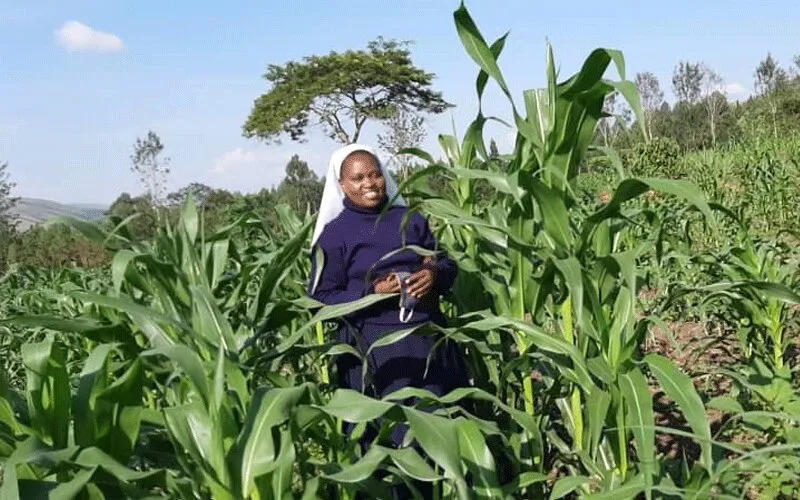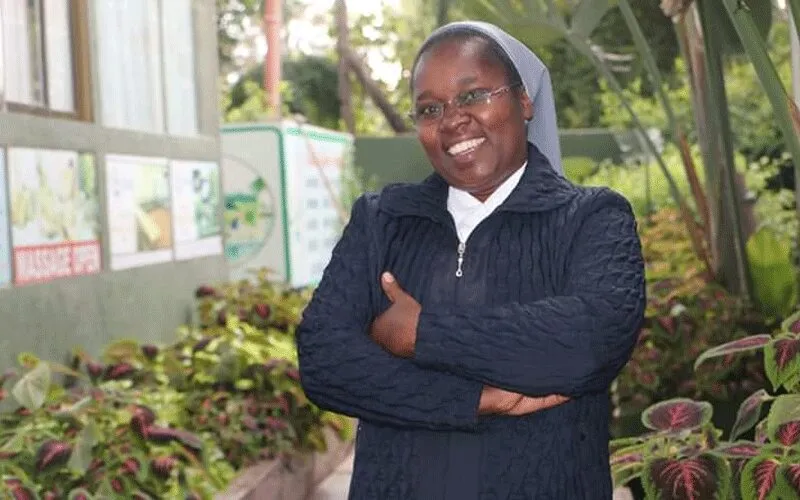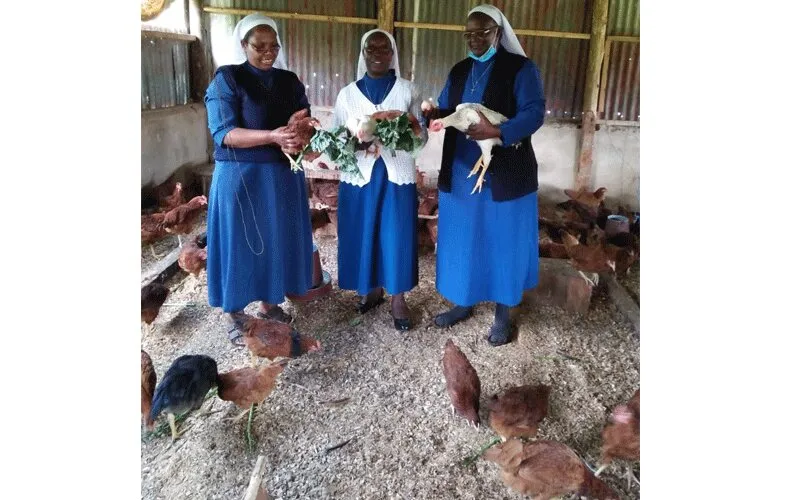The Sisters also interacted with Teach a Man to Fish, an organization that helps schools and youth groups around the world to create fully functional youth-led businesses that are both educational and profitable.

Additionally, the Sisters learnt from Eggpreneur, a social enterprise working in remote Kenyan rural communities to build sustainable egg farming ventures that help families end the cycles of poverty.
The Learning visits were then followed by a workshop in March 2019. Miller Centre developed the curriculum in consultation with ACWECA leadership, which they later adapted to better address the needs of the Sisters within the Eastern and Central African region.
The workshop was designed to help the Sisters grow in their understanding of social entrepreneurship, distinguish social enterprise from charity approach, and learn how to develop their own entrepreneurial initiatives.
(Story continues below)
The workshop addressed topics such as theories of change, social value creation, value chains, and partnership strategies, among others.
In the interview with ACI Africa, Sr. Celestine said ACWECA and Miller Centre hope to have the curriculum entrenched in formation of Catholic Sisters in East and Central Africa.

“We want young women joining Religious Life to start interacting with the curriculum the moment they embark on their formation. We want the Sisters to have the idea of self-sustainability from the word go,” the alumna of the Centre for Leadership and Management (CLM) of the Kenya-based Tangaza University College (TUC) said.
The curriculum has four stages that amount to two years of learning before students graduate.
In the first stage, Sisters go through what the Project Coordinator calls Discovery and Discernment where the Sisters are assessed to gauge their technology skills.
In the second stage, referred to as the Farming Enterprise Workbook, the Sisters are connected to mentors, mainly at Santa Clara University and are equipped with the latest farming technologies and skills.

The Sisters then proceed to apprenticeships where they are connected with social enterprises, including those that ACWECA members have partnered with to equip the Sisters with hands-on skills depending on individual preferences.
The sisters are, during their apprenticeships, helped to develop business plans as per the social enterprises they choose in order to attract funding.
They then present the business plans to a panel of judges, mostly ACWECA partners. Those whose plans meet the requirements proceed to the final stage, that is, the accelerator stage where they are further supported to launch their startups.

Sr. Celestine has been creating awareness on the program and using various platforms to urge those at the helm of various Religious Orders in the Eastern and Central African region to adopt the project in their respective Congregations.
So far, 18 Religious Orders that are part of ACWECA including Eritrea, Ethiopia, Kenya, Malawi, South Sudan, Sudan, Tanzania, Uganda, Zambia and Zimbabwe have offered three Sisters each to participate in the program and to later be in charge of mentoring other Sisters in their respective Congregations, Sr. Celestine told ACI Africa.
The Nairobi-based Sister happily notes that over time, Sisters who are part of the project started to appreciate the use of technology, which is a key requirement for social entrepreneurship.

“It isn’t the nature of Religious Sisters to tell their stories publicly on social media. But the Sisters are embracing technology more and more where they tell success stories of their social enterprises,” she says.
She continues, “It is by telling such stories that their donors and investors in their businesses know that they are creating real impact.”
The other challenge that the Sisters grapple with is access to credit since taking loans has never been their way of life, Sr. Celestine observes.
“For a start, the Sisters have received donations from Catholic philanthropists such as Nancy Otoboni from the U.S. who grew up in the Catholic Church and says she would love to see Religious Sisters in Africa grow to become self-reliant,” Sr. Celestine recounts.
She adds, “We haven’t applied for any loan yet but with time, we hope that sisters will learn that loans are a part of enterprising.”

The Missionary Sister who has previously in the administration of Catholic schools in Tanzania and Kenya observes that the whole idea of social entrepreneurship is a whole new concept and that Religious Sisters as well as Superiors of their Orders in the region will require some time to wrap their heads on it.
In the November 24 interview with ACI Africa, Sr. Celestine insisted that whatever enterprise the Sisters wish to venture into, ACWECA will strive to ensure that the enterprise is in line with the charism, vision and mission of the particular Religious Order and Society of Apostolic Life.
Agnes Aineah is a Kenyan journalist with a background in digital and newspaper reporting. She holds a Master of Arts in Digital Journalism from the Aga Khan University, Graduate School of Media and Communications and a Bachelor's Degree in Linguistics, Media and Communications from Kenya's Moi University. Agnes currently serves as a journalist for ACI Africa.
















